In the Boston quarantine zone, a short way from the docks, a nameless girl sits on a square of pavement, lost between junkyard fixtures which have turned her seat of concrete into a corner of a shanty town room. A man passed through there once, recently or maybe a lifetime ago. A man named Joel. The girl didn’t notice him at first. As he picked paper off the walls and street, trying to piece together a world that had long since crumbled away, she held on to the one fragment that mattered to her, cradling it in the nook of her arm, caressing its head. It was a stuffed animal, now greyed by the ages. A giraffe.
Joel approached her then, an intruder to the sacred grounds of her isolation. She recoiled. With eyes both cold and burning, she stared at Joel and held close her one possession. She would not look away. She spoke with a voice inaudible: ‘You cannot take this. I will not lose this, too.’
Walk away from the girl, as Joel eventually must, and she returns to her solitude. All wrongs are forgotten and she returns to a place where nothing and no one else exists.
* * *
The world of The Last Of Us spills with small, crushingly beautiful details like this. Where other narratives tread with Set Pieces and Overdramatized Cinematics, Joel’s tale forms from a series of feather-light steps, muted moments, and spoken silence. Subtlety — perish the thought! — and nuance. The craft of the story needs to be seen through these instances.
Spoilers abound!
“BABY GIRL”
Joel didn’t grow up with a sister. It’s such a small consideration, but it lends so much authenticity to the relationship he has with his daughter. An older sibling has that pool of experience from which to draw when he or she becomes a parent, and Joel only had a younger brother, Tommy. So it makes sense that Sarah was a bit of a precocious tomboy, making crass jokes about selling hardcore drugs but refusing to help pay Joel’s mortgage.
Their exchange not only informs one of the game’s most important motifs — the broken watch — but also paints an intimate portrait of their relationship. As much as Joel works late nights to keep a roof over her head, she still finds ways to support her old man, staying up late for him on his birthday with a precious gift in hand.
It was also refreshing to see these characters’ bedrooms because you learn so much about them in a non-intrusive way. Too many games don’t capitalize on the opportunity. Joel’s is particularly telling because his apartment in the Boston QZ twenty years later is shown as well, and it’s startling how similar they are. A certain barrenness colours them both, separated only by apocalyptic decay. It’s the first real indication of just how obstinate Joel is in his ways.
The decision to begin before the outbreak of the Cordyceps Brain Infection was a fantastic choice, as well. After all, is this not the single most fantasized about hour in the entire post-apocalypse scenario: the precise tipping point between quivering normalcy and full-blown chaos? To witness it, even in a fictional sense, is fantasy fulfilment at its best. Neil Druckmann (Creative Director) and his team knew this. That’s why the 360-degree drive sequence and the run through Austin exists.
“WHAT LOSS IS”
Joel’s introduction comes in several waves tinted with a similar idea: powerlessness. In a medium dominated by power fantasies, Joel is first heard pleading with Tommy, his (younger) brother, about a contractor who is likely their boss, then being driven by him to town, and protected by him as they head for the bridge. Meanwhile, Joel is rendered helpless because he’s carrying his daughter. He can’t even hold a gun. And when he’s at the mercy of the soldier at the bridge, and the anonymous voice signs his death warrant, again is he helpless.
Of course, mid-apocalypse means that everyone’s agencies suffer. Tommy may have a gun, but even he’s running for his life. The Infected themselves are, possibly, people trapped inside a body they can’t control. Even the soldier at the bridge is only following orders, and the voice in his earpiece is likely speaking out of panic. True, Sarah is the most powerless of all, at the mercy of a ‘woman in the refrigerator’ trope. But it didn’t feel gratuitous or undeserved. It was simply the tragedy of a parent losing a child.
Sarah’s death, the final stroke, is a loss affecting both the character and the player. She was our first surrogate in TLOU, rendered superbly well, and Joel had just managed to carry her through an exploding town. All the player’s efforts — and it’s important to make sure that the segment wasn’t protracted, else it’d feel like too much of a loss — are undercut. No matter how quickly we sprint to the bridge or stay close to Tommy, Sarah always dies. And Joel will always become a man irrevocably scarred by her passing.
“FEDRA AND THE FIREFLIES”
The opening credits, with the snippets of VO overlaid on images of fungal growth, was an effective shorthand for disclosing twenty years’ worth of exposition. The particulars of the FEDRA-Fireflies War weren’t crucial to the plot, so much of it was left to inference. It’s a bold choice. Those interested in this element of the world need explore the area with Joel while Tess ushers them to the checkpoint. What we see: rations are halved, people are taken out of buildings and shot, or drafted into a supplies expedition into the dangerous outside.
The entire section is another vignette, broad strokes illustrating how this QZ functions and what life is like within them. It was actually really interesting to see this system, and I wouldn’t be against playing as just an ordinary citizen caught under the thumb of FEDRA.
“SHITTY PEOPLE”
Tess and Joel’s relationship lacks the complexity of romance, instead built on the simple necessity of companionship. It’s not someone to love and to cherish; it’s someone to watch your back. And the terms are unsentimental. Everyone acknowledges that the two go together, yet they live on opposite sides of town. They’re still very much independent units. This struck me the most when in the outskirts of Boston, where even the crumbling buildings have begun to lean on each other to stay standing.
Tess’ charisma as a leader also serves the purpose of early tutorials for the player, often leading Joel with specific instructions. It’s a great narrative choice that works in tandem with the needs of the game. Druckmann doesn’t stop there, however, having extended her into ruthlessness. Robert’s function, indeed, seemed only to highlight her (and Joel’s) formidable skills in the post-apocalypse black market. She shoots Robert’s guards first, then Robert himself in an act completely devoid of emotion — and not before setting Joel to torture him.
Behind all that, it’s clear why Joel gravitated towards Tess. She’s proven that she’s more than capable of taking care of herself. In Joel’s mind, there is a promise made by her strength that says he won’t have to endure losing her. That’s why he’s allowed himself some rudimentary, if still guarded, connection.
One of the pure joys of TLOU is watching the facial animations at work. Naughty Dog devs combined incredible technical skill and meticulous attention to expressions that translates actors’ performances almost wholly. One of the most heartbreaking examples of this is when Tess, being bitten, watches Joel leave with Ellie. Throughout the whole scene, she never strays from survivor mode, from being invulnerable. She even tries to cheapen their relationship by bringing up obligation, even as her feelings run far deeper.
She refuses to seem weak, to appear pitiful. But when Joel turns, and we linger on Tess’ face, the façade falls away from her. In her final moments, alone, she allows herself to be vulnerable.
It’s such a stunning scene.
“GETTIN’ YA KILLED”
Even before Tess dies, Joel is resistant to Ellie and it’s no mystery why. All she does is remind him of Sarah. When Tess gets infected by their journey to deliver Ellie, his distant demeanour only magnifies. The next arc, then, seems only to play into Joel’s development.
Bill, voiced and played marvellously by W. Earl Brown, embodies a different space in the post-ruin world: a lone wolf. In another sense, he reflects an extreme of Joel’s own philosophy: isolate yourself as much as possible and restrict your vulnerabilities. After Sarah and Tess, Joel is already ready to embrace a life of solitude. He’s had enough loss. Bill’s frequently voiced opinions only support the idea. To him, caring for other people — in the world that they were in — was only good for getting yourself killed.
In other words, Bill represented a hopeless state that Joel was quickly falling into. Bill’s character, thus, was very deliberately constructed and placed in Lincoln for a purpose. He wasn’t just someone who could give Joel a car; he was someone Joel needed to come across to slowly come to terms with Ellie’s presence in his life.
Joel’s choice to withhold Tess’ death from Bill raised some questions for me. He forbade Ellie from mentioning her ever again, but during several conversations — some involving Bill casually berating Tess — Joel said nothing. Even now, I’m not entirely sure why. Could Joel just not bring himself to say the words?
Bill’s “alleged” homosexuality was also handled very well. It wasn’t so subtle that this part of his character was hidden, but devs kept away from being obvious about it and from using stereotypes. He was the one character I wish we could have spent more time with. (Here’s hoping the DLC will include him somehow.)
Just as Tess, Bill’s animations were mesmerizing. I don’t think I’ve ever seen MoCap so fluid and lifelike. His eyes welling up when he finds Frank — yet another demonstration of subtlety with regards to their possible romantic history — was so tragically moving. The wires, walls, and traps all around Lincoln keeping outsiders and the infected at bay, I imagine, would from then on only grow more hostile. The metaphor is self-evident.
“WHEN WE DIE”
Pittsburgh marks the first real time that Joel’s exceptional ‘survival’ abilities really proved themselves. It just happened to do so in swaths of blood. After clearing out the hotel, one of the hunters comes out running to his, er, ‘associates’ exclaiming that dozens lay dead in Joel’s wake. It’s a chilling moment of reflection, when encounter after encounter is piled together into a body count like that. It puts into perspective just how little of a difference there is between Joel and his enemies.
Marlene had made a point earlier in saying that stealth wasn’t really Joel and Tess’ “style.” But there is one glaring problem this brings up: the game doesn’t acknowledge a stealthy approach. Even if Joel had cleared the hotel by choking out every single sentry, the aforementioned hunter’s dialogue doesn’t change. It’s one of the rare schisms between gameplay and narrative in TLOU.
Henry and Sam present the most obvious parallels to Joel and Ellie as another adult-caring-for-child pair, but like Bill, he enters into the storyline with purpose. After Joel jumps off the bridge with Ellie and washes up on shore, he’s forced to confront an equal and opposite truth: what if protecting someone means endangering others? This was the reason cited by Henry for leaving Joel and Ellie at that checkpoint, and it’s the first challenge Joel faces with regard to his mission to deliver Ellie.
Henry and Sam’s deaths illustrate a truth for Joel as much as they do for us: in a bleak world, your reasons for living are few. Henry had to put down his own little brother, and then face that he had lost him as well. He had failed and he couldn’t live with it. Joel’s own loss is something he works so hard to protect himself from that he shuts everyone out. Tess had been a loss he could move past because of that distance he keeps.
Although the two don’t serve a crucial plot function (i.e. to provide information), they resulted from a necessary externalization to Joel’s own inner conflict. Like Bill, it was a relief to see two characters who didn’t fall into conventions of type. They weren’t black stereotypes, but simply characters who happen to be black and who were fully rendered. I again have to commend the attention to detail here as well. Back at the toy shop, Ellie will always wait for Joel to turn away before stealing the toy off the ground. Turn back, and it’s gone. A lesser game would have simply not bothered, but devs valued consistency enough to demand more from themselves.
The robot toy was perhaps a bit heavy-handed in its symbolism of innocence lost. The fact that it had the brightest colour saturation in TLOU only draws attention to its artificiality. But it’s a minor detail.
The sidestory with Ish was brilliantly executed, as well. Even though it’s told entirely through notes in the beginning, the time between each snippet fakes a comparable passage of time with that of Ish’s own narrative, allowing me to invest in this character I hadn’t even met — and, as it turns out, I never would. The events again reinforce the notion that it isn’t simply enough to survive for its own sake. Everyone needs a reason to live.
He would also be another interesting expansion for the single-player DLC. What happens to him after the sewers?
“WRANGLED UP”
When Fall comes, Joel still refuses to open up to Ellie about anything, to stop and allow himself to feel for the deaths of Henry and Sam. Ellie is a different story. At the dam crossing, after Ellie is ushered over on a pallet, she puts up a high-five for Joel to reciprocate. “Teamwork,” she says. Press the prompt and she says “yeaaah.” It’s a light-hearted exchange, yet it’s so poignant. I couldn’t bring myself to ignore her no matter how many times I walked by. It was just too cold. But even if Joel doesn’t feel what players do, Ellie is becoming attached to him.
It’s another interesting parallel yet again foregrounded by a supporting character. Tommy and his wife, Maria, foreshadow what is already an inevitable outcome: Joel and Ellie becoming a family unit. So much time had gone into depicting their distance, and so much restraint to make it feel authentic instead of melodramatic, that the payoff was geared up to be cathartic. Their scene at the ranch after Ellie runs away is one of the most beautifully rendered scenes in the game. Ellie’s “except for you” to Joel actually reduced me to tears.
Although the fight immediately after was necessary to truncate the cutscene, the shoot-out leading to the ranch was one of the few encounters that felt forced and noticeably out of place. The context made no sense; Ellie shouldn’t have been able to pass them.
Tommy has little screen-time, serving more of a functional role in introducing the safe haven, pointing them to the Fireflies, and revealing more of Joel’s backstory. Devs had a lot of patience with filling in the last twenty years in such small and vague increments, but it doesn’t detract from the narrative. Because of this mystery though, Tommy would be another choice for the single-player DLC. Joel might be able to accept everything he ‘had to do’ right after the pandemic, but Tommy may still be haunted by it as he tries to live his own life.
“TOO MUCH”
The moment Joel decides to take Ellie to the Fireflies himself is also another turning point that went wonderfully understated. There was no fanfare, only a subdued strum in the soundtrack. But it was the first act of genuine familial love. It didn’t need to be a grand gesture, in fact he doesn’t even say much to Ellie in that scene. He only asks her to return her horse. The impact derives from the stark contrast of the last words he said to her, along with everything that came before: “You sure as hell ain’t my daughter.” Druckmann was consistent with that coldness, and when it broke, he trusted the audience to feel it. And feel it we did.
The horse ride through the University in Colorado, tinted in the warm dusk light — a perfect marriage between environment lighting, mood, and atmosphere — is TLOU‘s first instance of warmth and tenderness. He was no longer a man stuck with a child, but a father connecting with a daughter. There was no reason Tommy couldn’t provide a car. Devs chose horseback for this segment to bring Joel and Ellie close physically to mirror their emotional states.
One of the best payoffs for setting up the story so far into the apocalypse is to contrive the situation that Joel finds himself in as they ride around the campus, explaining what used to be a rite of passage for kids her age — what we take for granted. It’s a fatherly duty — or perhaps more generally a parental one — that fits in the context. Ellie has no idea what life was like before, much like a young child hasn’t lived long enough in the world. Joel is repeating to Ellie something he may well have said to Sarah all those years ago.
Joel’s injury, I’m torn about. Although it leads in to some great moments in the Winter act, the severity of the wound and subsequent infection seemed ambivalent. It was serious enough to put him out of commission for a few weeks, but with one injection of antibiotics, he regains enough strength to take out, tie up, and interrogate two of David’s men after dispatching a handful of others right before. And here is where we see a shadow of the old Joel resurface.
“LITTLE PIECES”
David serves as the one clear human antagonist in TLOU, and the opposition in the game’s only major boss battle. But he’s not too much different than anyone previously encountered. He’s a scavenger, a survivor, a killer and sadist when he needs to be; he also happens to be the leader of a group of people — a position one can only wonder how he attained. What sets him apart the most against all the cast of characters, now that I think about it, is that instead of appearing threatening, he is the only one who tries to appear docile.
Tricksters don’t belong in a world stripped bare. That’s why neither Ellie nor I was put at ease in spite of his softer voice, his tame demeanour, his willingness to disarm himself. Something about him just felt off. The danger he posed was fully realized, revealing himself as the final straw that robs Ellie of the innocence Joel had fought so hard to preserve, or rather burdens her with the weight of full-on, cold-blooded murder Joel didn’t want her to have to bear.
The comparison is set up from the opening of the Winter act with Ellie hunting a deer, the creature inevitably representing a part of its hunter. It’s closed out when the Spring act opens with Ellie staring at an engraving of the same animal. The motif bookends the change with a live specimen, then with a lifeless silhouette to insinuate death. It’s another beautifully executed, meaningful narrative choice.
In Joel’s re-embracing of his notorious methods of torture and in David’s twisted appetites, Joel is reminded of just how different Ellie is from Tess and from him, and how similar with Sarah. The two younger girls are still very much children, even if they have somewhat grown thicker skin from the worlds in which they grew up. The darkest act in all of TLOU serves to remind Joel of his fatherly instinct and turn his resolve into something unbreakable.
“FOUGHT LIKE HELL”
Through each chapter, Joel had gotten progressively more… well, to say ‘cheerful’ would be a gross overstatement. But his spirits, in tiny tiny steps, improve as his relationship with Ellie deepens. Nowhere is this more evident than in the highway sequence at the start of the Spring act, where Ellie remains visibly traumatized by David’s assault. The events weigh heavily on her spirits, and instead of focusing on a monologue or an explosive externalization of internal conflict, devs chose to show the gravity of the trauma through Joel.
In rare instances does Joel initiate a conversation. But in seeing Ellie in such a dark mood, Joel grows almost uncharacteristically talkative. He talks to her about teaching her how to swim, to play guitar. He so desperately tries to cheer her up, that when that moment in the bus station comes, in which Joel prompts to boost Ellie onto a ledge like business as usual only to find that she’s nowhere near him, it’s devastating. The fact that it involved a gameplay element only reinforced its power.
The encounter with the giraffes, of course, was another lovely touch by Druckmann. With all the atrocities we had witnessed, especially with the cannibalism in David’s camp, Ellie and Joel and the player were united in the experience of nature’s beauty. Shortly after, we find another deviation from the game’s semiotics. Joel goes to open the door with the triangle prompt, but stops short. He resumes to offer Ellie a way out, but it only demonstrates his own hesitation in the Fireflies.
In another echo of an earlier moment, Joel lets his guard down when he tries to resuscitate Ellie, even as armed Fireflies approach him. Where Tess let her emotions show when faced with certain death chosen over the degradation of being infected, Joel outright ignores twenty years of instincts facing life without Ellie. That is his Fate Worse Than Death.
Of course it’s no surprise at this point, given everything he has been through. In losing Tess, traveling with Bill, meeting Henry and Sam, reuniting with Tommy, surviving David, and every moment of struggle in between, Joel had long since made his choice. I feel like it should have been obvious that this vaccine — or rather the chance of finding one — would cost them more than a simple blood sample. Even downplaying Ellie as mankind’s saviour, the price was going to be steep. It seems devs made sure to place emphasis on the characters rather than the external plot, and thank goodness for it.
“I GOT YOU, BABY GIRL”
There’s something breathtaking when a story or game comes full circle, ending with a mirror image of its beginning. The score eases in as Joel once more picks up a daughter in his arms and runs for his life and hers in what is without a doubt Gustavo Santaolalla’s best work in TLOU (though every bite of sound in the game is absolutely perfect). My pulse was racing. I was completely immersed in that moment. Devs even introduced lights of a pink-ish hue, perhaps as an echo to the fires Joel saw in Austin twenty years earlier.
This was when it became clear to me that even though I had no agency as a player, Joel was making a clear choice. All the guns and weaponry and crafting he had amassed throughout the game is pulled away as he carries Ellie in his arms, but he has never been more in control.
Of course he would choose her over humankind. The morality of the Greater Good was something that had cost him dearly once before. What else was the soldier on the bridge doing than protecting the many from the few? That soldier had made the same decision Marlene was prepared to make. Joel would have none of it.
It’s at this moment that I realize the significance of the nameless girl from the Boston QZ who had held fast her doll, protecting it from the prying presence of the stranger, the many, the all-intrusive Greater Good. Some things are just too important to give up.
The Last Of Us is the very definition of a linear narrative, but its commercial and critical success only demonstrates that this very basic story structure still has a place in the medium. Joel’s choice to abandon humankind, to betray the trust of the one person who cares for most, feels absolutely right. It was the inevitable end to his character arc.
“I SWEAR”
Why did I feel as though I was in mourning by the end of the game? By all accounts, it was a happy ending. Or, at least, it was as happy an ending as one could expect given the genre to which the characters were tethered. Joel and Ellie were both alive, together, and on fairly good terms. Yet I couldn’t shake the feeling that there was a death of sorts. I just wasn’t sure of what.
I think about what lies hidden beneath Ellie’s last word, searching her expression for some clue as to what she meant and how she truly feels. I’ve watched it again and again, but the truth of her state hides outside my ability to discern it. Joel could very well be making a purely selfish choice, affecting her life in a way that prevents him from having to experience loss even as she would want nothing more than to beat the plague which has taken so much from her and everyone else.
But is it unthinkable that she actually might want to be lied to? Ellie is still just a child, and to have the burden of the world weighing against her life could just be too much. Maybe she doesn’t want to have to make the noble choice. Maybe she wants to live.
What’s most haunting about that possibility is how it would play into the title. The Last Of Us, it seems, is a tale of how humanity meets its end, when the one person with the key to its salvation finds that some things are just not worth surviving.

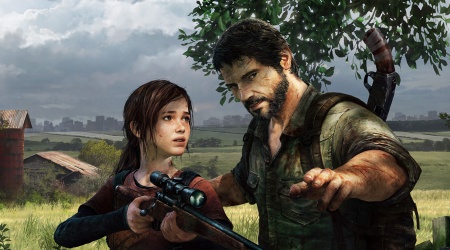
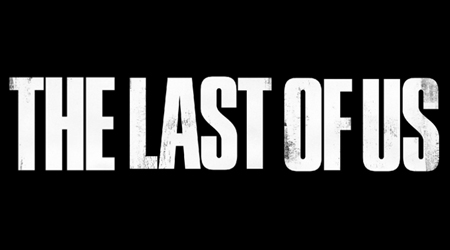
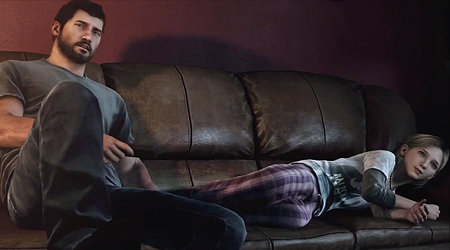
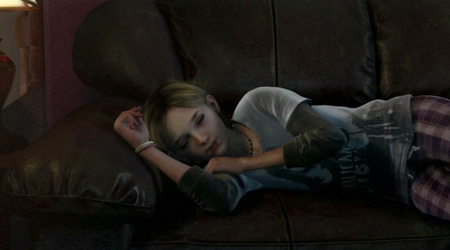
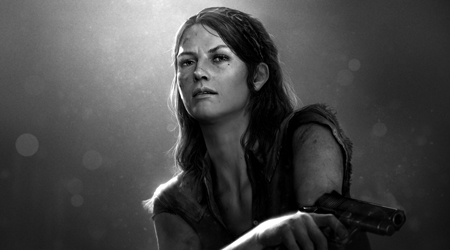
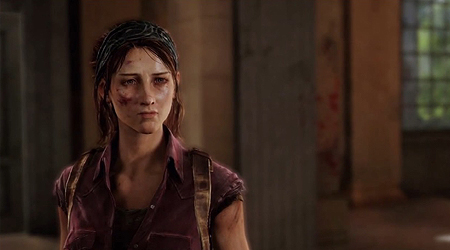
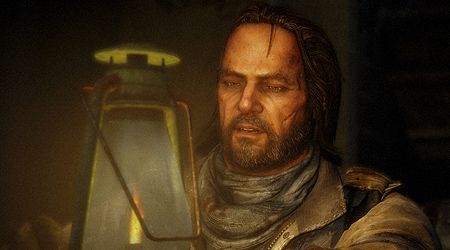
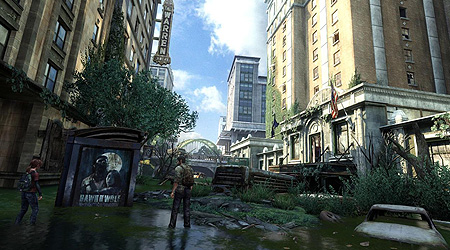
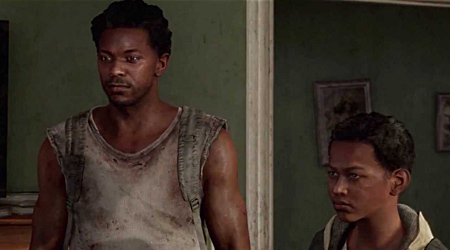
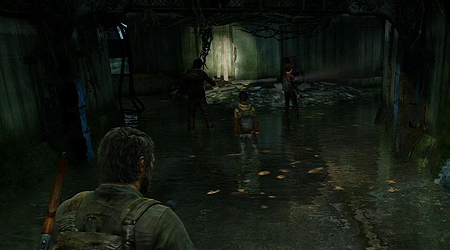
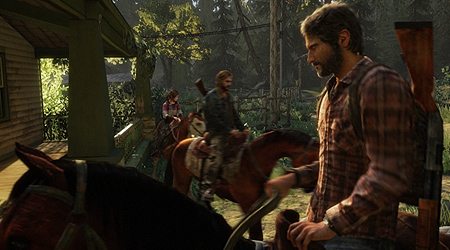
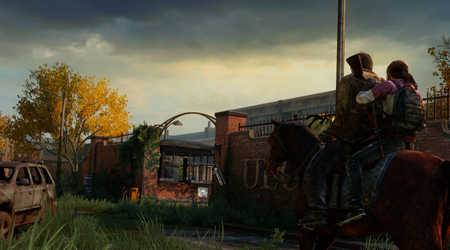
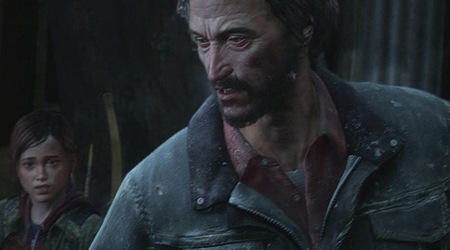
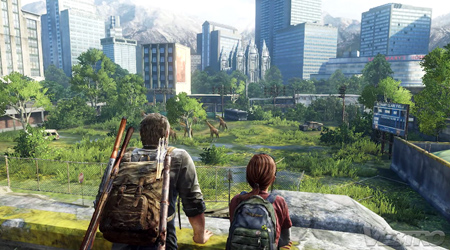
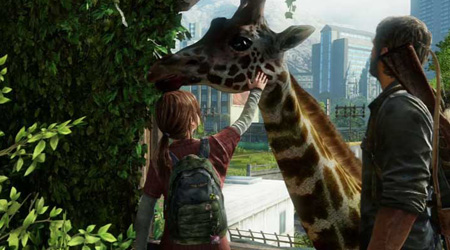
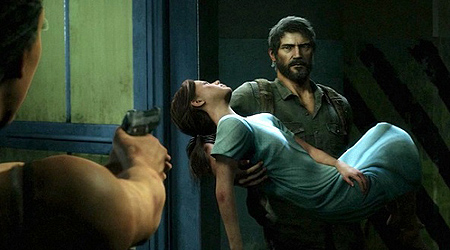
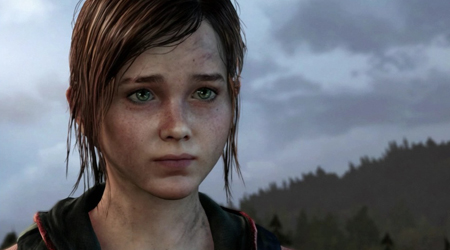
An incredible, emotionally complex game that I hope sets the standard for games moving forward. Nice blog, thanks for taking the time to write it.
Absolutely. TLOU is a wake-up call for developers; this and so much more is what the medium can do.
Thanks for commenting!